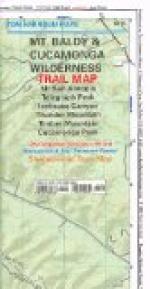Just at present, being fast asleep, dreaming, and—if I must say it—snoring like troopers, upon their mattresses of pine boughs, they are unable to give any information about themselves. But the friend who has been authorized to record their travels will be happy to satisfy all reasonable curiosity.
To begin, then, with the “boss” of the party, Cyrus Garst, the writer would say that he is a student of Harvard University, and a brainy, energetic, robust son of America. Among his college classmates he is regarded as a bit of a hero; for, in spite of his comparative youth, he is an enterprising traveller and a veteran camper, whose camp-fire has blazed in some of the wildest solitudes of his native land. For his hobby is natural history, and his playground the “forest primeval,” where he studies American animals amid the lonely passes which they choose for their lairs and beats.
Every year when Harvard’s learned halls are closed for the long summer vacation,—sometimes at other seasons too,—he starts off on a trip to a wilderness region, with his knapsack on his back, his rifle on his shoulder, and often carrying his camera as well.
Once in a while he has been accompanied by a bosom friend or two. More frequently he has gone alone, hiring the services of a professional guide accustomed to the locality he visits. Now, such a guide is the indispensable figure in every woodland trip. He is expected to supply the main part of his employer’s camp “kit”; namely, a tent or some shelter to sleep under, cooking utensils, axes, etc., as well as a boat or canoe if such be required. And this son of the forest, whose foot can make a bee-line to its destination through the densest wooded maze, is not only leader, but cook and general-utility man in camp as well. The guide must be equally grand-master of paddle, rifle, and frying-pan.
For these tireless woodland heroes Cyrus Garst has a general admiration. He has always agreed with them famously—save on one point; and he has never had to shorten his wanderings for fear of lengthening their fees. For Cyrus has a millionnaire father in the Back Bay of Boston, who is disposed to indulge his whims.
The one point of variance is this: while all guides admire young Garst as a crack shot with a rifle, he frequently dumfounds them by letting slip stunning chances at game, big and little. They call him “a queer specimen sportsman,”—understanding little his love for the wild offspring of the woods,—because he never uses his gun save when the bareness of his larder or the peril of his own life or his chum’s demands it.
Nevertheless, feeling the need of fresh meat, the naturalist was for the moment hotly exasperated because his English comrade, Neal Farrar, missed even a poor chance at a buck during the midnight excursion on Squaw Pond.




